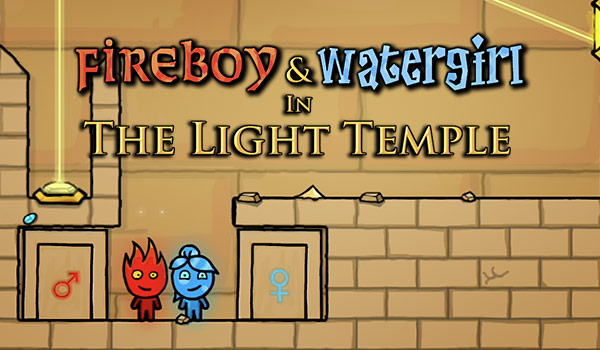Call of Duty is one of the most recognized and successful video game franchises in history. Known for its fast-paced action, cinematic presentation, and deep multiplayer systems, Call of Duty has sold over 400 million copies worldwide across nearly two decades. Developed by multiple studios under Activision, it has become synonymous with the modern first-person shooter genre.
Since its debut in 2003, Call of Duty has redefined military shooters by constantly evolving through historical settings, modern warfare, futuristic combat, and battle royale formats. Its influence spans across gaming, streaming, esports, and pop culture. With yearly releases and massive marketing campaigns, it’s more than a game — it’s an entertainment titan.
This article explores Call of Duty’s origins, innovations, sub-series, controversies, and cultural footprint. Whether you're a competitive player or a casual fan, this deep dive explains why Call of Duty remains at the top of the gaming world.
1. The Beginning: World War II Roots
Call of Duty launched in 2003 as a World War II shooter designed to compete with titles like Medal of Honor. Developed by Infinity Ward, the game stood out by focusing on squad-based combat, immersive sound design, and cinematic sequences inspired by real war footage.
The early Call of Duty titles were praised for their realism and gritty storytelling. Missions put players in the boots of American, British, and Soviet soldiers across major historical battles. The franchise earned immediate acclaim for its high production value and authenticity.
Call of Duty 2 and 3 built on this success, becoming staples on the Xbox 360 and PlayStation 3. They solidified the franchise's position as a top-tier military shooter during the sixth generation of consoles.
2. Modern Warfare Revolution
In 2007, Call of Duty 4: Modern Warfare changed everything. Abandoning World War II for a fictional modern conflict, the game introduced contemporary weapons, global terrorism plots, and a fast-paced multiplayer system that would set the industry standard.
Modern Warfare's campaign was cinematic and emotional, featuring iconic moments like the nuclear explosion and the Chernobyl sniper mission. Meanwhile, its multiplayer introduced perks, killstreaks, and customizable loadouts — features that revolutionized online shooters.
The success of Modern Warfare transformed Call of Duty from a strong series into a cultural juggernaut. It marked the beginning of the franchise’s annual release cycle and massive competitive scene.
3. The Black Ops Era
Developed by Treyarch, the Black Ops series took a darker and more psychological approach. Starting in 2010, Call of Duty: Black Ops explored Cold War espionage, brainwashing, and conspiracy theories. It quickly became one of the most beloved sub-franchises.
Black Ops introduced deep lore, memorable characters like Mason and Woods, and a chaotic multiplayer experience that emphasized speed and innovation. It also popularized the now-iconic Zombies mode — a cooperative survival mode filled with secrets, traps, and undead horrors.
Subsequent entries like Black Ops II, III, and Cold War experimented with future warfare, branching storylines, and specialist characters, keeping the gameplay dynamic while expanding the universe.
4. Campaigns and Cinematic Storytelling
Call of Duty campaigns are known for their cinematic flair and intense pacing. Unlike sandbox games, COD campaigns are linear but filled with dramatic set pieces, scripted moments, and emotional beats.
Whether you’re storming Normandy, infiltrating a skyscraper in Dubai, or chasing terrorists through war-torn cities, the single-player experience is designed to feel like a blockbuster film. Voice acting, motion capture, and writing have improved with each generation.
While not every entry has a campaign — some like Black Ops 4 focused solely on multiplayer — fans often praise titles like Modern Warfare, Infinite Warfare, and WWII for delivering gripping narratives.
5. Multiplayer Systems and Evolution
Multiplayer is the heartbeat of Call of Duty. Over the years, it has introduced numerous innovations: customizable killstreaks, Prestige leveling, Operator characters, skill-based matchmaking, and Gunsmith weapon tuning.
Classic maps like Nuketown, Terminal, and Shipment are legendary, while new maps release regularly with each update. Game modes like Team Deathmatch, Search and Destroy, and Domination remain staples, while newer additions like Gunfight, Hardpoint, and Invasion keep things fresh.
The multiplayer formula balances speed, reflex-based gunplay, and tactical loadouts. Frequent balance patches, seasonal battle passes, and ranked modes ensure players always have goals to chase.
6. Zombies, Spec Ops, and Side Modes
Zombies, introduced in World at War, became a defining mode for Treyarch-developed titles. It offers four-player co-op against waves of undead, with increasingly complex maps, easter eggs, and story arcs spanning multiple games.
Spec Ops mode, found in Modern Warfare entries, emphasizes tactical co-op missions and survival challenges. It’s a great fit for players who want story-driven teamwork without the pressure of PvP combat.
Other experiments, like Extinction (alien survival) and Gun Game, show the franchise’s willingness to offer alternative gameplay experiences alongside its core formula.
7. Call of Duty: Warzone and Battle Royale Expansion
In 2020, Call of Duty: Warzone launched as a free-to-play battle royale spin-off and quickly exploded in popularity. It features a large open map, 150-player lobbies, and mechanics like the Gulag and Loadout Drops.
Warzone successfully merged the core COD shooting mechanics with a massive, strategic multiplayer format. Regular content updates, integrations with Modern Warfare, Cold War, and Vanguard, and seasonal storylines made it feel alive.
The game's success brought millions of new players into the franchise and influenced other studios to adopt free-to-play or cross-progression models.
8. Cultural Impact and Controversy
Call of Duty is one of the most watched games on streaming platforms and has deeply impacted gaming culture. Phrases like “nuke streak,” “no-scope,” and “1v1 me” entered the gaming lexicon because of it.
However, the franchise has also faced criticism. Some entries were accused of lacking innovation or reusing assets. Others sparked debate for their depiction of real-world conflicts, graphic violence, or political narratives.
Despite occasional backlash, Call of Duty remains a defining title in competitive gaming, youth culture, and even military recruitment, with some branches using it for simulations or outreach.

































